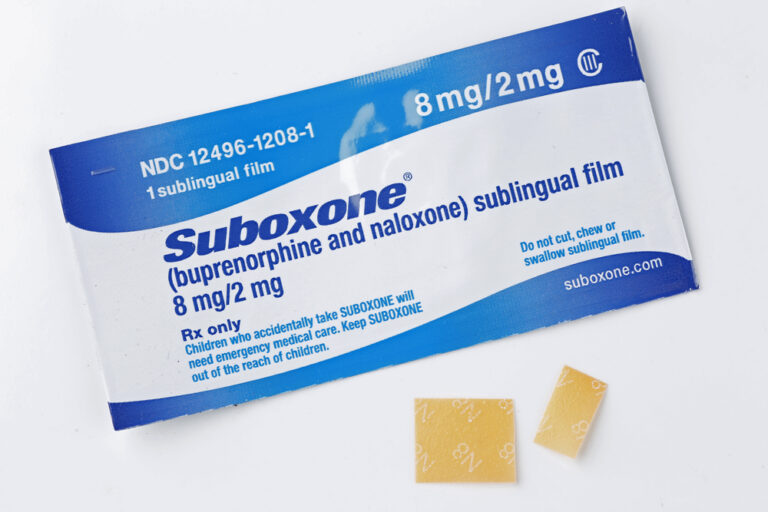
Suboxone is a manufactured drug, and is widely used to treat opioid addiction. It combines buprenorphine with naloxone, which bind to the same brain receptors as opioids. The drug is able to provide opioid users with a way to curb their cravings for opioids, without actually using opioids. Many people have found Suboxone treatment to be a lifesaver and an extremely effective form of treatment for their addiction. One study showed a 50% decrease in fatal overdoses and a significantly lower risk of an accidental overdose. Some people still believe that Suboxone is more dangerous than the opioids patients are trying to stay away from, despite its proven effectiveness. This leads to a proliferation of misinformation, such as the myths below.
It is extremely difficult to overdose on Suboxone. Although the compound is similar to opiates in its reaction to receptors, Suboxone is only a partial opiate receptor antagonist. This means that Suboxone doesn’t provide the same high as other opiates. The result is a compound that can satisfy the cravings for opiate addiction but does not cause overdose.
Suboxone, if taken with other drugs, can in fact trigger an overdose though. This combination can lead to dangerous reactions, and it is highly recommended to consult with your doctor before combining any other medications with your Suboxone prescription.
Those who are in addiction treatment know, Suboxone is extremely helpful in aiding them achieve recovery. When an opioid is consumed, the drug attaches to brain receptors responsible for pleasure and reward, resulting in the user feeling less pain. These intense brain chemicals that signal “pleasure” can cause a euphoric feeling. The brain craves the feeling more than it would naturally feel when it is receiving the neurotransmitters.
This is why opioid addiction can be so common! It can be very difficult to overcome these cravings, which can lead to a vicious circle of addiction that is hard to break. Suboxone, which partially binds to opioid receptors, does not provide the euphoric feeling. Although this is a significant step forward for addicts, it doesn’t necessarily mean that recovery will be easy. To achieve full and lasting recovery, recovering addicts need to stay away from opiates and other similar substances. Suboxone treatment is only as effective as you allow it to be in some cases, and with it, a patient can experience long lasting results as long as they follow the guidelines of their recovery process.
Some believe that Suboxone, which is a drug, cannot be considered therapy. There is also a great deal of misinformation regarding where Suboxone can be obtained from, with some pointing out that Suboxone is a substance sold on the street. Although dealers might sell Suboxone, that does not negate the benefits and evidence for this treatment. There are many stories about teenagers using Nyquil to get drunk. However, the drug is still well-known for its ability to help with sleep and fighting the common cold!
Addiction treatment should include therapy if possible, as addiction can be a difficult and long-lasting process. Counseling, group therapy, and other support methods have been proven to prevent relapses. But, that doesn’t mean Suboxone alone is not a viable treatment option for patients. If the Suboxone combats cravings and keeps the user on the right track to recovery from addiction, we view this as a successful treatment.
Although there is much debate among doctors about the duration of Suboxone treatment there are no studies that show there are long-term harmful effects of Suboxone. There are different recovery times for everyone. Some recovering addicts may require Suboxone, for a longer periods of time than others. Studies have shown that Suboxone, if used for only a short time, can lead to relapses because the user did not have enough time to overcome the intense cravings that opiates trigger.
As mentioned, Suboxone ideally would be combined with counseling sessions. Suboxone, as well as counseling, may be required for long-term recovery.
Every addict, especially those who are opiate addicts has a bad reputation. This is because they have an addiction. This type of stigma is extremely shortsighted as addictions can be caused by a variety of situations. Many people become addicted to prescription pain medication, which is a completely innocent introduction to opiates. The brain craves for positive stimulus, and when that rush can be provided (even if in the form of an opiate), who wouldn’t feel the cravings addicts must overcome? We must break this stigma and offer more to support to those in need of addiction treatment and substance abuse therapy.
Suboxone significantly lowers your chance of a fatal overdose occurring and may also help you get over an addiction. And if you have believed any of these myths about Suboxone in the past, you might feel as if treatment may not be safe or right for you.
However, this is not true. With hard work and a commitment to getting clean, Suboxone can help anyone who is on the right path to recovery. You are not alone in your addiction or in your journey to sobriety. If you or a loved one are suffering from addiction or substance abuse, please contact us today. We are here to help you along the way, and throughout your road to recovery. A New Crossroad serves the Powdersville, SC area. Contact their office today, or if you are in another part of the US, you can reach out to the following MAT offices:

Visit Us
Open At
Copyright 2025 ©A New Crossroad